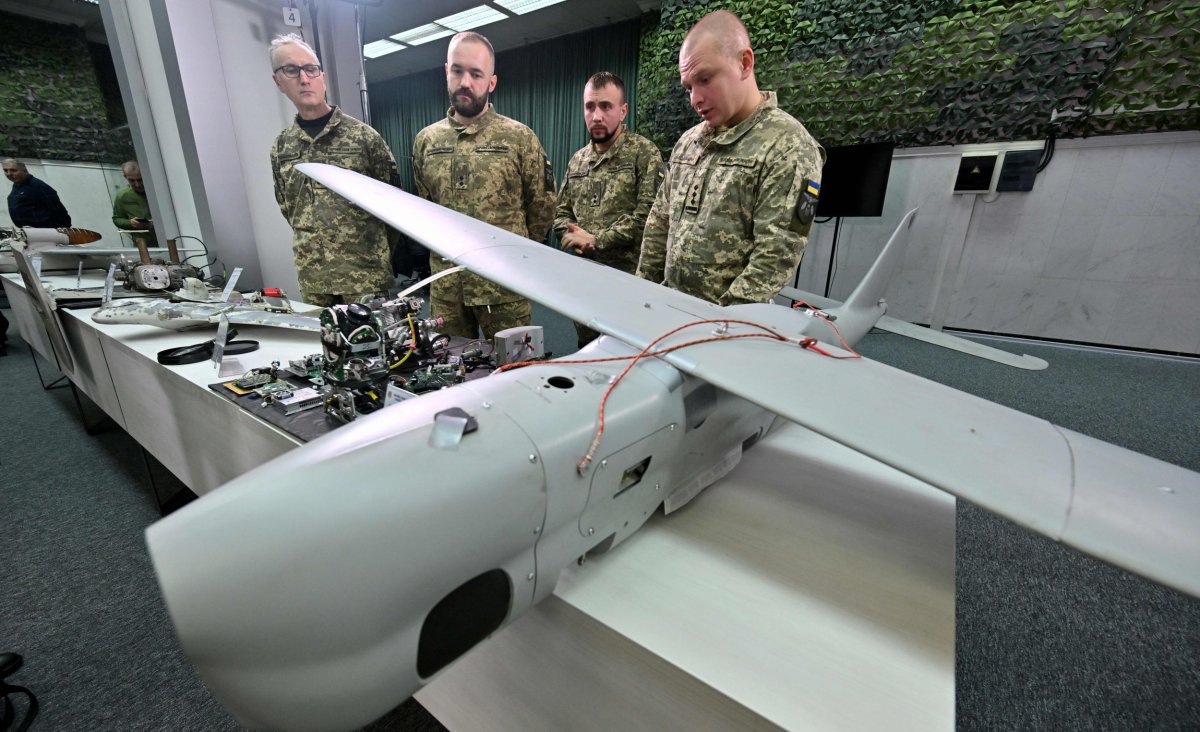Russian drone makers have become masters of circumventing international sanctions in order to access vital technology used in President Vladimir Putin's war machines, according to a recent report out of Switzerland.
The November 15 report by the Bern-based swissinfo, a division of the Swiss Broadcasting Corporation, found Russia's manufacturers of various unmanned aerial vehicle models continued to acquire key components from the West or Western-aligned governments, including Switzerland, the United States and Taiwan.
The development casts further doubt on the effectiveness of otherwise sweeping controls placed on Russian public and private sector access to equipment Putin has used to continue his army's ongoing invasion of neighboring Ukraine, whose resistance has resulted in a stalemate as the fighting enters a second winter.
"This isn't a case of Moscow using old equipment from before the sanctions, either: many of the components were produced this year," Mikhail Khodorkovsky, a long-time critic of the Kremlin now exiled in London, said in an X thread on Wednesday. "So how is Putin bypassing sanctions and getting his grubby hands on them?"
"Some of the components, such as microchips, are also used in various commercially available goods, such as electric scooters—these can easily be extracted and resold, and are not classified as military equipment," said Khodorkovsky, whose investigative project, the Dossier Center, contributed to the research.
The Russian opposition leader said intermediary shell companies, or "fixers," registered in Turkey and China were helping the Kremlin procure components, leaving "no paper trail to suggest any sanctions were violated," Khodorkovsky said.
Among the beneficiaries of this secretive supply chain was Russia's Lancet UAV, a highly effective loitering munition, or "kamikaze drone," that Kyiv's defenders have found difficult to stop. Swiss-made components were among the parts found inside the Lancet when Ukrainian engineers stripped the machines for inspection, swissinfo said.
In another example, documents reviewed by the Swiss news agency revealed that VMK, a leading electronic components supplier in Russia, imported $53,500 worth of parts from China, Malaysia and the Philippines, all via Hong Kong.
A similar middleman strategy was used to source drone parts from leading American companies such as Analog Devices, Texas Instruments and Atmel, the report said. Meanwhile, components made by Taiwanese company VBsemi were also discovered inside Russian military-grade drones on the battlefields of Ukraine.

That Russian drone makers were openly registering components of Chinese origin was "a serious issue," Khodorkovsky said. "People are dying in Ukraine every day at the hands of these drones, and cutting off Moscow's access to their components would go a long way to reduce the deaths."
At the other end of the spectrum, Ukraine's armed forces were also said to be struggling to acquire commercial drone parts made in China after authorities limited their exports.
"China, by limiting supplies, may covertly try to reduce the combat potential of Ukraine, increase the advantages of Russian armed forces, and thus create the conditions for bringing Ukraine to surrender," Yurii Poita, who heads the Asia-Pacific section of the Center for Army, Conversion and Disarmament Studies in Ukraine, told Newsweek in October.
Components sourced from China accounted for 67 percent of the parts used in Russia's drone fleet, according to a September report by the Kyiv School of Economics.
Kurt Campbell, U.S. President Joe Biden's Asia czar, said on Thursday that Beijing's support for the Kremlin was "deeply concerning."
"China has assisted through a variety of means. Not necessarily direct military means, but through support through commercial and other engagements. But Russia has largely reconstituted militarily," he told the Senate Foreign Relations Committee, which was considering his nomination for deputy secretary of state.
"And even though China purports to be an independent actor that has not taken sides, very clearly, they have taken sides here," Campbell said."
"Switzerland has said there is no guarantee that the problem will ever be fully under control. But that doesn't mean it, and other countries whose components are found in Putin's deadly arsenal, shouldn't step up efforts to minimize the damage," Khodorkovsky said.
The U.S. State Department and the Swiss and Taiwanese foreign ministries didn't return Newsweek's separate requests for comment before publication.
Uncommon Knowledge
Newsweek is committed to challenging conventional wisdom and finding connections in the search for common ground.
Newsweek is committed to challenging conventional wisdom and finding connections in the search for common ground.
About the writer
Aadil Brar is a reporter for Newsweek based in Taipei, Taiwan. He covers international security, U.S.-China relations, and East Asian ... Read more
To read how Newsweek uses AI as a newsroom tool, Click here.






